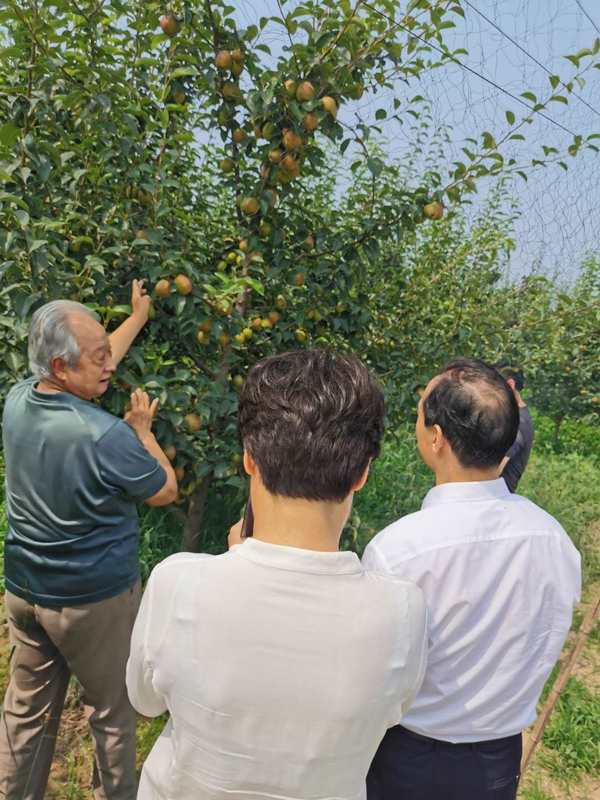Nov . 06, 2024 07:50 Back to list
Premium Quality Apple Pollen for Enhanced Fruit Production and Pollination Benefits
The Significance of High-Quality Apple Pollen in Agriculture
Apple cultivation is a significant aspect of agricultural production, contributing not only to local economies but also to global food supply chains. Central to the successful cultivation of apples is pollination, a critical process that directly influences the yield and quality of the fruit. Among the various factors affecting pollination, high-quality apple pollen stands out as a key element in achieving optimal results.
Understanding Pollination
Pollination is the transfer of pollen from the male parts of a flower (the anthers) to the female part (the stigma). In apples, this process is facilitated primarily by insects, especially bees. When bees visit apple blossoms, they collect pollen, which they later deposit on the stigmas of other apple flowers. This cross-pollination is essential for the fertilization of flowers to produce fruit. Without sufficient high-quality pollen, the likelihood of fruit set diminishes, leading to lower yields and potentially affecting the overall quality of the apples produced.
The Role of High-Quality Pollen
High-quality apple pollen is characterized by its viability, genetic diversity, and the absence of contaminants. Viable pollen grains must be capable of germination when they land on a compatible stigma, leading to successful fertilization. The vigor of pollen can vary based on several factors, including the environmental conditions during pollen development, such as temperature, humidity, and soil health.
Moreover, genetic diversity in pollen sources can significantly enhance the quality of the resulting fruit. Different apple varieties may exhibit unique traits, and cross-pollination among these varieties can lead to apples that are more resilient to diseases, have improved flavor profiles, and possess a better texture. Consequently, apple growers often cultivate multiple varieties to ensure that pollination occurs effectively.
Finally, the purity of pollen is paramount; pollen contaminated by pathogens or pests can introduce diseases that might devastate apple orchards. Employing agricultural practices that prioritize cleanliness—like regular monitoring of pollinator populations and minimizing pesticide use during flowering—can help maintain the integrity of pollen.
high quality apple pollen

Supporting Pollinator Populations
To produce high-quality apple pollen, it is vital to support the health of pollinator populations. Bee populations, particularly honeybees and native pollinators, are crucial for the successful pollination of apple trees. However, these populations have faced numerous challenges, including habitat loss, pesticide exposure, and climate change.
Farmers and agricultural stakeholders can contribute to pollinator health in several ways. Establishing wildflower strips around orchards can provide foraging resources for bees throughout the season. Furthermore, minimizing the use of harmful pesticides, especially during bloom time, offers a safer environment for pollinators to thrive. Monitoring bee populations and fostering biodiversity in local ecosystems will also play a crucial role in ensuring effective pollination.
Innovations and Practices for Quality Pollen Production
Recent advancements in agricultural technology provide growers with new tools to enhance pollen quality and pollination efficiency. Research into pollen management techniques such as cryopreservation allows for the storage of high-quality pollen, enabling growers to access diverse genetic material regardless of the flowering dates.
Additionally, the use of precision agriculture techniques can help farmers monitor and manage their orchards more effectively. By utilizing data on soil health, moisture levels, and pest populations, farmers can create conditions that optimize flower health and improve pollen production.
Conclusion
High-quality apple pollen is indispensable for the successful cultivation of apples. Its role in ensuring effective pollination, enhancing genetic diversity, and maintaining fruit quality cannot be overstated. As agricultural practices evolve in response to environmental changes, the focus on protecting pollinators and optimizing pollen management will be crucial for the future of apple production. Emphasizing sustainability, supporting pollinator health, and leveraging innovative agricultural technologies can pave the way for a prosperous and fruitful apple industry for generations to come.
-
Plant Pollen Analysis with GPT-4 Turbo AI Technology
NewsAug.04,2025
-
AI-Powered Plant Pollen Analysis Using GPT-4 Turbo
NewsAug.03,2025
-
Plant Pollen Analysis: Fast & Accurate with GPT-4 Turbo
NewsAug.02,2025
-
KiwiPollen with GPT-4 Turbo: AI Health Supplement Boost
NewsAug.01,2025
-
Pollen Peach Tree AI Management with GPT-4-Turbo
NewsJul.31,2025
-
Eco Fruit Paper Bags for Peak Freshness | Durability Focused
NewsJul.31,2025